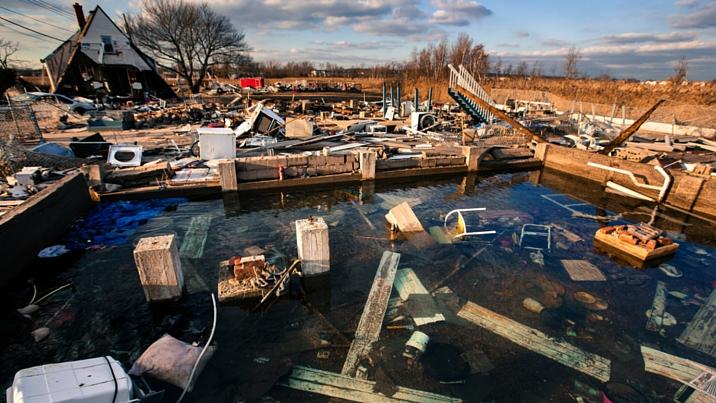
Section Branding
Header Content
After a natural disaster, renters receive less assistance than homeowners, study finds
Primary Content
LISTEN: GPB's Peter Biello speaks with Georgia Tech's Brian An about his study on rents rising after natural disasters.

A new study has found that after a natural disaster strikes, renters get less assistance than homeowners. They also find it harder to move to new places and feel more acutely the squeeze of rising rents when the available housing stock is depleted. The study, by a group including Georgia Tech and the Brookings Institution, is among the first to expose the impact of disasters on rental housing markets. Brian An, an assistant professor in the School of Public Policy at Georgia Tech, coauthored the research. He spoke with GPB’s Peter Biello.
Peter Biello: For this study, you looked at a lot of data, including ZIP code-level rent data. You also looked at grants for disaster recovery, and you also talked to renters to learn more about their experiences. What did they tell you about what they experienced in the wake of a natural disaster?
Brian An: We had some survivors of past disasters, and we heard how hard a situation they had to go through right after big hurricanes. Some of them had to pay rent even though power was shut off and there were not any proper services from rental housing service provider. And others, even though they were asked to evacuate the building, they really didn't have any plans prepared. So they actually wished to stay in the building, even bearing the risk of the disasters. Some even talked about some retaliation actions [from] bad landlords, describing how their post-disaster life experience has been traumatized.
Peter Biello: When we're talking about the policies that come into play in the wake of a natural disaster, is it that renters get less benefit from the existing policies than actual homeowners, or is it simply that the policies that are in place for homeowners don't apply to renters at all, and renters often get nothing?
Brian An: I think both are true.
Peter Biello: Depending on the location, perhaps?
Brian An: No. Actually, the existing federal policy framework for disasters really doesn't care much about the renters. It's mostly exclusively focused on homeowners because you have — when you claim for your damage is focused on real estate damage, not personal property damage. And what we heard from one of the relief service providers is that FEMA, they do not accept photographic evidence. So renters — it would be very hard for them to prove their damages.
Peter Biello: You argue in this study that renters need more representation. What do you mean by that?
Brian An: Yeah. We are not necessarily talking about political representation, though that would be also needed. We are more broadly talking about the spaces for renters in the policy domain, in terms of the availability of policy options or instruments for renters and the eligibility of policies that are focused on renters, especially low-income renters who tend to live in older housing stock, which also tend to be located in high-risk climate zones. And also those in subsidized housing, who would have the least means to deal with the impact of natural disasters. So currently, we don't really have all these policy options for renters at the federal policy framework. But we know that some state and local governments have been experimenting with their regulatory power. For example, we know that some local governments have adopted anti-rent-gouging laws or eviction moratoria in the wake of natural disasters so that they can protect renters. But these kinds of approaches could be also considered at the federal level, or maybe incentives to state and local governments in exchange for disaster recovery funding.

